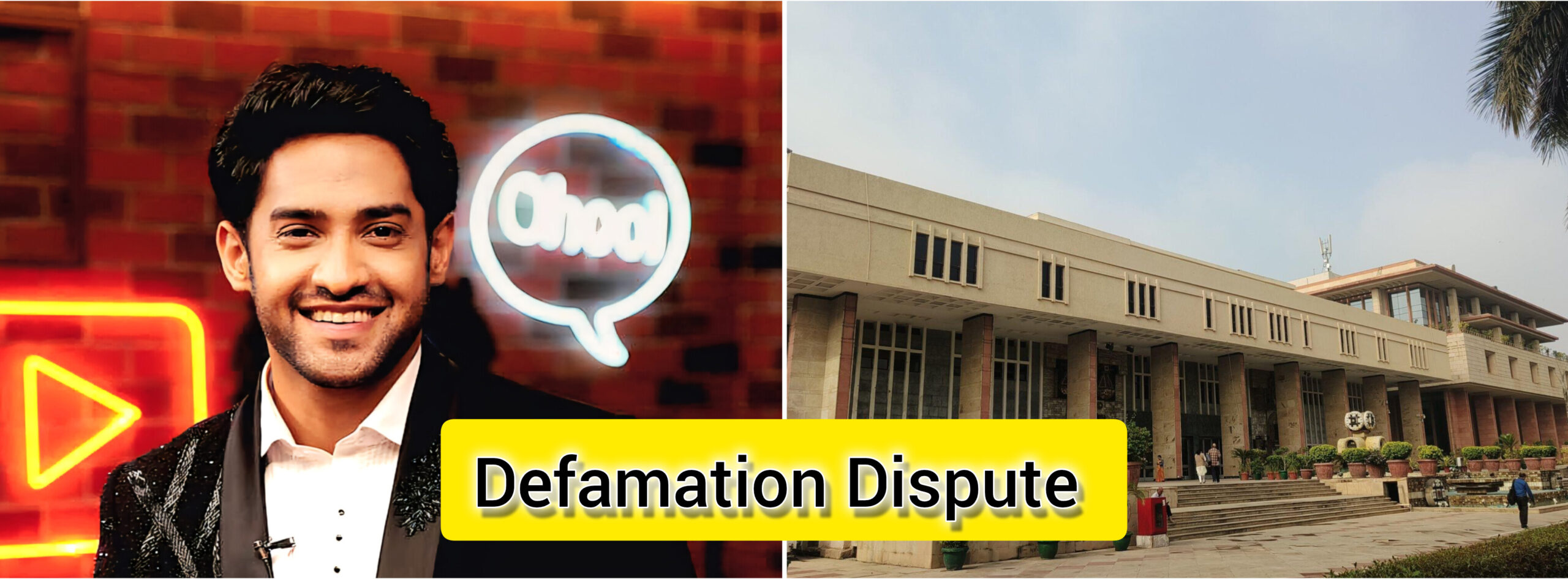Introduction
The Delhi High Court in the high profile case of ANI Media Pvt. Ltd. vs. Mahesh Rajesh Keshwala & Anr. has passed its judgment in a case of defamation dispute involving one of the most recognized news agencies in India. It has received a lot of media and legal coverage due to its implications, on the freedom of press, the rights to reputation, and limitations on responsible journalism.
History of the Defamation Row
The case of defamation dispute came about when ANI Media Pvt. Ltd. sought a claim against Mahesh Rajesh Keshwala and another respondent citing that the defendants had made and circulated malicious publications that had tainted the image of the agency. ANI made the allegation that these words were intentionally misleading and extremely crippled its public image and reputation.
The plaintiff expressed her belief that the defamatory material was very popular on multiple platforms, which damaged not only the professional reputation of the company but also its place in the market of competing news producers. The question that formed the basis of the case was whether the words stigmatized in the case were actually defamatory and could support under Section 499 and Section 500 of the Indian Penal Code or whether the accused had any defence under the exceptions to the law of defamation.
Law Argument in the Libel Case
ANI Media Pvt. Ltd. counsel submitted that the statements which were in question were imminently abhorring, malicious, with intent to damage the reputation of the agency. Their emphasis was that reputation is part and parcel of professional credibility in issues concerning the media and such an impairment may have far-reaching effect. Using a precedent established in Subramanian Swamy v. And at Union of India, (2016) 7 SCC 221 they reiterated that the right to reputation is integral of Article 21 of the Constitution. Alternatively, the defense claimed that they were within the grounds on which defamation is allowable exception, especially the right to comment fair on all issues of social importance. They argued that they made the comments on fact and that it was part of the exercise of legitimate and free speech under Article 19(1) (a) of the Constitution.
When approaching the issue of examining the issue of merits in a defamation dispute conflict, the Court needed to be aware of the fact that there are two conflicting constitutional rights at stake here, freedom of speech and the right to reputation.
Observations by Delhi High Court in the case of Defamation
The Delhi High Court after hearing the defamation dispute case arguments of both sides noted that although free speech is part of democracy, it cannot be turned into a license to defame others by making unverified, false and injurious statements. As the Court observed:
“Freedom of expression does not imply that the expression could consist of a statement which is palpably false and is motivated only by the desire to damage the reputation of another. The test burden in this defamation case is on the defendant to establish that the statements made were not only true, but also published in good faith.”
The Court also held that the defendants had not availed enough evidence to establish the veracity of the accusations made by them as well as to defend the alleged accusations under the exceptions laid down under Section 499 IPC. It also emphasized that corporate bodies are also human beings who may defend their reputation against vicious insults.
It refers to the Rajagopal v. State of Tamil Nadu, (1994) 6 SCC 632, the Court reiterated that in as much as the press enjoys the freedom to publish matters of public interest, this freedom is subject to ensuring that the spirit of accuracy and fairness has been observed.
Conclusion
The ANI Media Pvt. Ltd. vs. Mahesh Rajesh Keshwala & Anr. Case by the Delhi High Court has established the important precedent in corporate defamation dispute cases. Through the decision to favor ANI, the Court has reaffirmed that constitutional right of free speech does not authorize immunity to disseminating lies and reputational protections are also Constitutionally enshrined. This decision will remind both the media and people in general that the quest to establish the truth and accuracy should remain the subject of the discussion in the public domain, particularly these days when the communication aspect of the digital world revolves at high speed.
About Author
Asmi Basu, a fifth-year, ninth-semester, Int. BBA LL.B (H.), law student at the Department of Juridical Science, JIS University, Kolkata, demonstrates a developing expertise in legal writing, with a keen interest in the dynamic legal environment. Her areas of focus include Criminal Laws, Human Rights, Women and Child Laws, Corporate Law, Property and Land Laws, and Constitutional Law and remedies. Ms. Basu is committed to leveraging her writing to advocate for social issues that warrant focused attention from relevant authorities.

